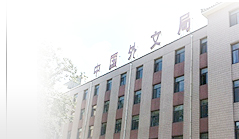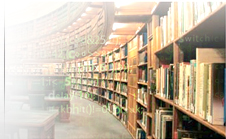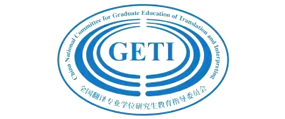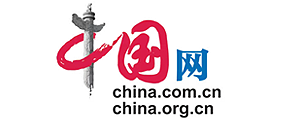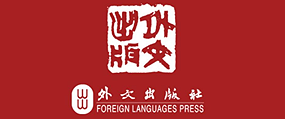译论研究
韦努蒂与鲁迅异化翻译观比较 / 王东风 5
翻译的限度与译者的责任——由安乐哲的汉英翻译经验引发的若干思考 / 孙周兴 11
尊重差异——当代翻译研究的伦理观 / 申连云 16
研究方法
翻译研究与论文写作——翻译学硕士研究生学位论文写作问题分析 / 姜秋霞 权晓辉 20
译史纵横
选择、顺应、翻译——从语言顺应论角度看利玛窦西学译著的选材和翻译策略 / 梅晓娟 周晓光 26
冯友兰翻译思想述评 / 孙文龙 田德蓓 30
书刊评介
历史、现在与未来:翻译研究在世纪初的思考——《翻译研究指南》述评 邢杰 刘芳 33
一部具有探索精神的力作——评《翻译补偿研究》 / 陈吉荣 37
翻译教学
“Professional Corpora”: Teaching Strategies for Work with Online
Documentation, Translation Memories and Content Management / Anthony Pym 41
网络辅助课程与翻译教学整合实证研究 / 段自力 46
译技探讨
翻译中的文化语境:剖析及对应 / 杨承淑 51
翻译语篇质量评估模式再研究——功能语言学路向 / 司显柱 57
对“Three Represents”及数字式略语译法的探讨 / 王振南 61
专利说明书的英译策略 / 朱植德 66
法律术语“原告”和“被告”的英语译名 / 赵德玉 曲凤 71
“方程式赛车”翻译质疑 / 余静 76
译家谈译
英诗汉译:发展中的专业 / 黄杲炘 78
学术争鸣
优雅的译文必须以正确理解原文为基础——《中国翻译》“红海上的一幕”英译读后感 / 张梦井 82
答张梦井先生 / 史志康 83
自学之友
·译家译作·
英译汉:The Meaning of the 21st Century (James Martin) 叶子南译 85
翻译导读:语言基本上是隐喻的 / 叶子南 87
汉译英:妻子的手(高维) / Harry J. Huang译 90
翻译导读:保义传神 / Harry J. Huang 93
词语选译
中国译协对外传播翻译委员会中译英研讨会最新讨论词汇选登 / 94
英文摘要 / 95
信息广角
第18届世界翻译大会注册报名工作正式启动(封二)
第18届世界翻译大会新闻发布会剪影(封三)
本刊邮购信息(50)本刊稿约(19)会讯(84)其它(56、86)
中文摘要
韦努蒂与鲁迅异化翻译观比较
王东风 中山大学
摘 要: 本文对韦努蒂和鲁迅的异化翻译观进行了比较。从比较中不难看出,韦努蒂的异化翻译观与鲁迅的异化翻译观在几个关键特征上十分相似、乃至相同,主要表现在二 者皆视精英读者为异化翻译的目标读者群、视古语为异化表现、视选材为异化翻译的重要环节、视翻译为一种政治和文化行为。他们的不同点也很突出,鲁迅的政治 目的是保种救国,即自强,而韦努蒂异化翻译的政治目的则是要抵抗英美的政治、文化和语言霸权,即自抑。鲁迅的异化翻译的另一个目的是要改良目标语言,但韦 努蒂对于改良英语则不太关心。
关键词:鲁迅;韦努蒂;异化翻译
中图分类号:H059 文献标识码:A 文章编号:1000-873X (2008)02-0005-06
翻译的限度与译者的责任①——由安乐哲的汉英翻译经验引发的若干思考
孙周兴 同济大学
摘 要: 本文主要参照美国学者安乐哲的汉英哲学翻译经验,尝试探讨汉语言和汉语思想的特性,指出汉语思想传统中缺失欧洲哲学的超越性维度,揭示欧洲哲学与汉语思想 之间翻译转换过程中的语言限度问题。本文进而主张,在这个多元文化交往的世界时代里,译者首先应当坚持“差异化原则”,尽力避免把目标语言(母语)与被翻 译的外来语言同一化。而今天中国的西方哲学译者不得不面临一个紧张的难题:汉语言如何可能表达异质的西方哲学思维?我们是否需要以及如何可能防止把汉语思 想传统“哲学化”?
关键词:语言差异;哲学翻译;超越性;母语优先性
中图分类号:H059 文献标识码:A 文章编号:1000-873X (2008)02-0011-05
尊重差异——当代翻译研究的伦理观*
申连云 长沙理工大学
摘 要: 当代翻译研究中归化与异化讨论的实质不是关于何者更能忠实传达原意的翻译策略或方法问题,而是关于如何对待文化他者的伦理态度问题。面对文化他者,译者应 该寻求差异、发掘差异、尊重差异,而不是求同,这是当代翻译研究对翻译的人文价值所作出的价值评判。所谓求异,就是尊重他人文本中所描写的世界的完整性, 尊重他人文本自身的价值;所谓求同,就是在他人文本中取其所需,利用他人文本来实现自身价值和目的。对差异的尊重就是对他人的尊重。
关键词:翻译研究;翻译伦理;求异;异化
中图分类号:H059 文献标识码:A 文章编号:1000-873X (2008)02-0016-04
翻译研究与论文写作——翻译学硕士研究生学位论文写作问题分析
姜秋霞 权晓辉 西北师范大学
摘 要: 随着翻译学科的发展,翻译研究在横向的广度与纵向的深度上都有了很大的变化,研究层面更为广泛深入、研究方法逐渐成熟丰富。翻译学研究生学位论文的写作也 随之呈现出多样化趋势,在论文的选题、研究类型、研究程序等研究方法上有着更多更复杂的结构与形态。由于翻译学是相对比较新的学科,在研究方法上基于其它 社会及人文学科的研究方法,这往往使翻译学研究生在开始进行学术研究时难以遵循一种成熟的方法,从而出现各种问题。本文将对翻译学研究生硕士学位论文在研 究方法与具体写作过程中反映的各种主要技术问题进行分析,以期为研究生的翻译研究与论文写作提供一定的参考。
关键词:研究方法;开题报告;研究报告;问题分析
中图分类号:H059 文献标识码:A 文章编号:1000-873X (2008)02-0020-06
选择、顺应、翻译*——从语言顺应论角度看利玛窦西学译著的选材和翻译策略
梅晓娟 周晓光 安徽师范大学
摘 要:本文运用Jef Verschueren的 语言顺应论分析利玛窦西学译著的选材和翻译策略。作者指出,同一切言语交际活动一样,翻译也是一个连续选择的过程。译者要顺应具体的交际语境和交际对象, 选择相应的文本和翻译策略。利玛窦西学译著的选材顺应了明末中国知识分子的内在需求,翻译策略的选择又顺应了中国文化传统。他的西学译著因而受到知识阶层 的广泛欢迎,在中国翻译史和中西文化交流史上占有重要的一席之地。
关键词:语言顺应论;利玛窦;西学译著;选材;翻译策略
中图分类号:H059 文献标识码:A 文章编号:1000-873X (2008)02-0026-04
冯友兰翻译思想述评
孙文龙 徐州空军学院 田德蓓 安徽大学
摘 要:冯友兰先 生是我国著名的哲学家,他的《中国哲学简史》中包含了许多对语言和翻译的阐述,其中既讨论了哲学术语的翻译,也涉及到当前翻译研究的几个主要话题,如互文 性、社会文化、意识形态等与翻译的关系。这些思想对当代国内外翻译理论研究有着重要的指导意义,然而至今在翻译界却无人论及。本文对这些翻译思想进行了系 统的评述,以期能使学界对冯友兰先生的思想有更全面的认识。
关键词:冯友兰;翻译思想;述评
中图分类号:H059 文献标识码:A 文章编号:1000-873X (2008)02-0030-03
“Professional Corpora”: Teaching Strategies for Work with Online Documentation, Translation Memories and Content Management
Anthony Pym (Rovira i Virgili University, Tarragona, Spain)
Abstract: The expansion of electronic memory capacity is having fundamental long-term effects on the way texts are produced and used, and thus on the way they are translated. Translators are increasingly working on data bases in non-linear ways, separated from awareness of any active communicative context. This enhances productivity and consistency but challenges more humanistic values like understanding, cooperation, and job satisfaction. In order to address these changes, teaching practices should 1) make students aware of the communicative functions of texts, particularly the ways in which particular parts of texts become high-risk in particular situations, 2) teach students how to use electronic technologies within such a frame, and how to teach themselves about the technologies, and 3) train students for a range of professional communication jobs, incorporating both the technical sides and the various revision and editing techniques now required by the technologies.
Keywords: translation; text; teaching strategies; content management
中图分类号:H059 文献标识码:A 文章编号:1000-873X (2008)02-0041-05
网络辅助课程与翻译教学整合实证研究*
段自力 嘉兴学院
摘 要: 网络课程辅助翻译教学是网络信息技术在翻译课程教学中的一种应用,是联系翻译课程教学和翻译自主学习的桥梁和纽带。本文分析了翻译网络辅助课程的含义、设 计和功能,探讨了网络课程与课堂教学整合的途径和模式。实证研究表明,在英语专业本科翻译教学课程设置的现状下,网络辅助课程整合课堂教学,有利于优化翻 译教学资源,深化翻译教学内容,提高翻译教学效果和教学质量,培养学生翻译综合能力,为教师有效指导下的学生自主、合作、交互式翻译学习创造了有利的实施 环境。
关键词:翻译网络辅助课程;整合;设计;功能
中图分类号:H059 文献标识码:A 文章编号:1000-873X (2008)02-0046-05
翻译中的文化语境:剖析及对应
杨承淑 辅仁大学
摘 要:本文的主旨是针对翻译的“文化语境” (cultural context),探讨文化信息在译语重构时所显露的意涵、功能、特征,及其衍生为译语之际,译者如何透过原则性的选择与限制,以弥补源语与译语信息不对等的缺口。透过Pustejovsky (1995)的“衍生词汇理论” (Generative Lexicon Theory),本文将针对文本中的实例,探讨当文化语境以词语的形式表征出现时,词义在“属性结构” (qualia structure)的检视之下,源语意旨的流失、省略、变形等,如何透过置换、挪用、增补、重组、调节等手法,而在形式或功能上得到“可回复” (recoverable)的弥补或调整。本议题的讨论,可使原属无声语言的文化信息,透过对词语信息的翻译研究,彰显文化语境的信息内涵及角色功能,并归纳出源语转化为译语信息时的普遍原则。
关键词:文化语境的属性结构;衍生词汇理论;信息的可回复性;文化语境的转化原则
中图分类号:H059 文献标识码:A 文章编号:1000-873X (2008)02-0051-06
翻译语篇质量评估模式再研究——功能语言学路向
司显柱 江西财经大学
摘 要:本研究首先回顾和阐述了基于功能语言学的翻译语篇质量评估模式建构的依据,模式所包括的程序与参数。然后,从运用该模式对实际翻译语篇的检验出发,找出了原有模式设计上的缺陷,论证了翻译语篇质量评估模式的修正版本。
关键词:功能语言学;翻译质量;评估模式
中图分类号:H059 文献标识码:A 文章编号:1000-873X (2008)02-0057-04
对“Three Represents”及数字式略语译法的探讨
王振南 福州大学
摘 要:在我国,“三个代表”是一个使用频率较高的重要政治词汇,它的英文译法“Three Represents” 也早已被广泛采用。虽然,这对原文与译文短词在形式与内容上都十分对应,但有关专家认为,这一译法还是存在一点语法上的疑问。对此,本文作者通过收集国内 外相关资料,并运用举例、分类与对比等方法,对这一译法中存在的疑问进行分析,进而从语法上以及中西方语言文化习惯上作出解释,并提出相应的解决方法。
关键词:Three Represents; do,s and don,ts; 数字式略语
中图分类号:H059 文献标识码:A 文章编号:1000-873X (2008)02-0061-05
“方程式赛车”翻译质疑
余静 杭州电子科技大学
摘 要:本文对目前常见的Formula One racing以及其他与formula相关赛事的翻译进行了分析,从该赛事的名称由来及历史发展谈起,指出了目前各类formula races以及相关赛事名称译名中的不当之处,并提出了灵活的翻译策略与方法。
关键词:Formula One 来历;翻译
中图分类号:H059 文献标识码:A 文章编号:1000-873X (2008)02-0076-02
Contents
Venuti's and Lu Xun's Conception of Foreignizing Translation: A Comparison / Wang Dongfeng 5
The Boundary of Translation and the Responsibility of a Translator: Reflections on Ames, Chinese-English Translations / Sun Zhouxing 11
Respect for Difference: The Ethical Principle of Contemporary Translation Studies / Shen Lianyun 16
MA Thesis Writing in Translation Studies: Problems and Possible Solutions / Jiang Qiuxia & Quan Xiaohui 20
Matteo Ricci,s Selection of Source Texts and Strategies in His Translation of Western Learning: A Perspective from the Linguistic Adaptation Theory / Mei Xiaojuan & Zhou Xiaoguang 26
“Professional Corpora”: Teaching Strategies for Work with Online Documentation, Translation Memories and Content Management / Anthony Pym 41
Integrating Network Translation Course into Translation Teaching / Duan Zili 46
Cultural Context in Translation / Yang Chengshu 51
E/C Translation Practice: The Meaning of the 21st Century (James Martin) / Ye Zinan 85
C/E Translation Practice: My wife's Hands (Gao Weixi) / Harry J. Huang 90
Abstracts of Major Papers in This Issue 95
Abstracts of Major Papers in This Issue
Venuti,s and Lu Xun,s Conception of Foreignizing Translation: A Comparison
by Wang Dongfeng (Sun Yat-sen University) p. 5
Abstract: This paper offers a comparative study of Venuti,s and Lu Xun,s conception of foreignizing translation. The comparison shows that their viewpoints on this issue resemble each other in some key aspects yet differ in others. Both conceptions presuppose an elite readership, find in archaism a major device for creating foreignizing effects, regard text selection as a key link in foreignizing translation, and see translation as a political and cultural act. Lu Xun, however, advocated foreignizing translation in a bid to bring about his people,s self-improvement and to save the nation from being conquered or colonized, while Venuti commits himself to this approach in order to resist the Anglo-American political, cultural and linguistic hegemony or to exercise a kind of self-restraint. Lu Xun tried to use foreignizing translation as a means for modernizing and enriching the target language (in his case, Chinese), which Venuti does not share.
Key words: Lu Xun; Venuti; foreignizing translation
The Boundary of Translation and the Responsibility of a Translator: Reflections on Ames, Chinese-English Translations
by Sun Zhouxing (Tongji University) p. 11
Abstract: This paper reflects on American sinologist R. T. Ames,s English translations of classical Chinese philosophical texts from the perspective of Heidegger,s critique of the Western metaphysics of presence. Due to the lack in traditional Chinese philosophical writings of the notion of transcendence characteristic of the European philosophies, a Chinese translator of Western philosophical discourse risks transgressing the impassable conceptual boundaries between the two philosophical traditions, which are believed to be culturally specific and linguistically relative by Heidegger and some Anglophone language philosophers. Drawing from Ames,s approach to rendering Chinese classics and taking into consideration the fact that ours is the era of multiculturalism and cultural globalization, the author proposes that the principle of difference be maintained consistently by translators so as to prevent the target language from being dominated by the original language.
Key words: linguistic difference; philosophical translation; transcendence; the priority of the mother tongue
Respect for Difference: The Ethical Principle of Contemporary Translation Studies
by Shen Lianyun (Changsha University of Science & Technology) p. 16
Abstract: Domestication/foreignization in translation is more about ethical attitude towards the cultural other than about translation strategies or methods dealing with the original meaning. The humanistic value of translation dictates that translators should seek differences rather than similarities between the two cultures involved. To seek differences is to regard the original text as a totality which has it own values, and to seek similarities is to take what one needs from the original text for one,s own purpose. Respect for difference means respect for the cultural other.
Key words: translation studies; the ethics of translation; difference; foreignization
MA Thesis Writing in Translation Studies: Problems and Possible Solutions
by Jiang Qiuxia & Quan Xiaohui (North West Normal University) p. 20
Abstract: As a developing discipline, Translation Studies has been undergoing a rapid expansion in both its scope of inquiries and its span of available methodologies. Facing a wide-open area and confronted by a multiplicity of approaches, most of which borrowed from other studies, MA candidates working on their thesis are often at a loss over what and how to write. The present paper analyzes some of the students, problems in conducting their research projects and undertaking their thesis writing, and provides some advice for dealing with the issues explored.
Key words: MA thesis; proposal; research report; problem analysis
Matteo Ricci,s Selection of Source Texts and Strategies in His Translation of Western Learning: A Perspective from the Linguistic Adaptation Theory
by Mei Xiaojuan & Zhou Xiaoguang (Anhui Normal University)p. 26
Abstract: Drawing from Jef Verschueren,s theory of linguistic adaptation, this paper analyzes the selection of source texts and translation strategies in Matteo Ricci,s translations of Western learning. The authors hold that like other types of verbal communication, translation is a continuous choice-making process. The translator should adapt to the communicative context and the audience he faces, and should select source texts and translation strategies accordingly. This is exactly what Matteo Ricci did when he undertook to translate Western classics into Chinese. His choice of source texts was geared to the needs of the Chinese intellectuals in the late Ming Dynasty, and his selection of translation strategies was adapted to what he perceived as the Chinese cultural traditions.
Key words: theory of linguistic adaptation; Matteo Ricci; translation of Western learning; selection of source text; translation strategy
“Professional Corpora”: Teaching Strategies for Work with Online Documentation, Translation Memories and Content Management
by Anthony Pym (Intercultural Studies Group, Rovira i Virgili University, Spain) p. 41
Abstract: The expansion of electronic memory capacity is having fundamental long-term effects on the way texts are produced and used, and thus on the way they are translated. Translators are increasingly working on data bases in non-linear ways, separated from awareness of any active communicative context. This enhances productivity and consistency but challenges more humanistic values like understanding, cooperation, and job satisfaction. In order to address these changes, teaching practices should 1) make students aware of the communicative functions of texts, particularly the ways in which particular parts of texts become high-risk in particular situations, 2) teach students how to use electronic technologies within such a frame, and how to teach themselves about the technologies, and 3) train students for a range of professional communication jobs, incorporating both the technical sides and the various revision and editing techniques now required by the technologies.
Key words: translation; text; teaching strategies; content management
Integrating Network Translation Course into Translation Teaching
by Duan Zili (Jiaxing University) p. 46
Abstract: Network translation course is the application of network information technology to translation teaching. As a supplement to regular translation teaching, it offers a bridge between translation teaching and self-directed learning of translation. This paper analyzes the concept, function and design of network translation course, elaborating on the ways and the mode of its integration into translation teaching. A case study shows that as far as translation teaching in the undergraduate curriculum for English majors is concerned, the network course tends to enhance the effects of in-class teaching, to optimize the utility of translation resources and to cultivate the students, overall competence in translation. And it is also conducive to the creation of an autonomous, collaborative and interactive learning environment under the teacher,s guidance.
Key words: network translation course; course integration; course design; function
Cultural Context in Translation
by Yang Chengshu (Fu Jen Catholic University) p. 51
Abstract: This text looks into the cultural context in translation by discussing how the meaning, function, and characteristics of cultural messages are affected in the process of reconstructing the target language. It also examines how a (n) translator/interpreter uses principle-guided selection and limitation to make up for the lack of parallel between source language input and target language outputs. Applying Pustejovsky,s (1995) Generative Lexicon Theory to an examination of how cultural context can be brought out by terms and expressions, and observing translation,s impact on phrase meaning through qualia structure, we hope to understand how the loss, simplification, transformation, etc. of the source language information can be recovered and reorganized through replacement, duplication, supplementation, paraphrasing, modulation, etc. This topic gives us an opportunity to discuss how“the silent language”, i.e., the cultural messages that are often overlooked, can be transformed into culturally-sensitive overt messages. It also allows us to draw out relevant principles for SL-to-TL transforming of information.
Key words: qualia structure; cultural context; Generative Lexicon Theory; recoverability of a message; principles of conversion

